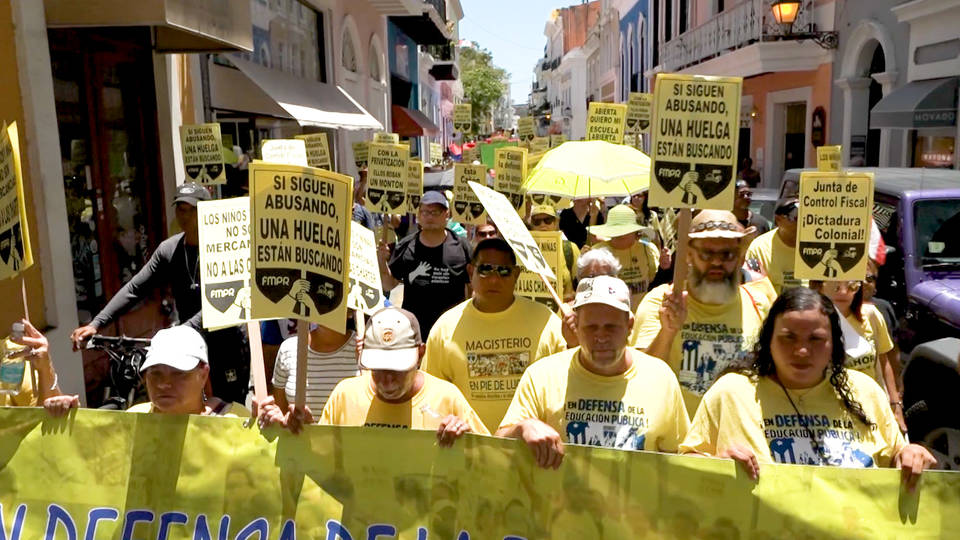
The people of Puerto Rico (or Borinquén, in the indigenous Taíno language) are in a situation all too familiar to New Orleans. The island is still in a state of crisis nearly a year after Hurricane Maria made landfall, thanks to the criminal negligence of the U.S. colonial government. On top of that, the working class is under intense attack in the form of budget cuts imposed by the federally-appointed Fiscal Control Board.
As with other spheres of life in Puerto Rico, the education system is threatened by the budget cuts. If the Fiscal Control Board has its way, the public educational system will be completely gutted and replaced by private schools.
Educators are resisting, however. They are demanding an end to the school closures as well as increased pay and an overall better allocation of resources to education. On August 15, the Puerto Rican Federation of Teachers carried out a work stoppage and marched through old San Juan. The march started at the Plaza Colón and went to the governor’s office.
According to the union president Mercedes Martinez Padilla, “The public education system,… the students and their teachers, have suffered the most brutal attack in history. Secretary of Education Julia Keleher has decreed the closure of some 450 schools in two years and has reduced the number of educators from 31,000 in 2016 to around 22,500 today. The government is poised to push the creation of dozens of private charter schools, subsidized with public funds.”
So far, over 250 schools have already been closed, including many that were in perfectly functional condition. Instead of keeping these schools open, Keleher is having them spend millions on FEMA trailers for classes that each cost over $42,000. Many special-needs children have not been given assignments. Many children are meeting in gazebos and buildings/trailers without AC and have not been provided with transportation for their new school assignments.
Given these extreme attacks, the educators have much to fight for.
